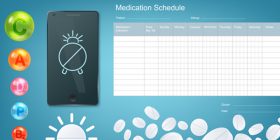It is not unusual for people living with diabetes (as well as their family and friends) to have concerns about hypoglycemia (low blood sugar). For some, this fear is a response to a previous hypoglycemic event. For others, it’s fear of the unknown, i.e. being aware that hypoglycemia can occur, but feeling unprepared to deal with it. Concerns about hypoglycemia can change the way individuals manage their diabetes. Many people will take action to avoid having any low blood sugars, which results in higher glucose levels that, over time, can lead to an increased risk of diabetes complications.
Why do people work so hard to avoid hypoglycemia? Perhaps it is because of how they felt when they were hypoglycemic, or how others around them acted during or after it happened. Regardless, episodes of low blood sugars can affect everyone. Beyond how it makes a person feel physically, there can be significant emotional responses. Guilt is often one of them. Embarrassment, anger, helplessness and frustration are others. Fear can affect everyone, and can also lead to controlling or angry behaviour from friends or family. This can be stressful for everyone involved.
Here are 5 steps you can take to reduce your concerns about hypoglycemia.
- Be informed – what is hypoglycemia and why does it happen?
For people living with diabetes, hypoglycemia is defined as a blood sugar level of <4.0 mmol/L. In those using insulin or medications called sulfonylureas (for example, glyburide or gliclazide), the risk of hypoglycemia is greater since these medications increase insulin levels in the body to lower blood glucose levels. Hypoglycemia occurs when there is not enough glucose and too much insulin in the body.
Risk factors for hypoglycemia include:
- Not eating enough food, specifically carbohydrates
- Delaying meals or snacks
- Taking too much diabetes medication
- Unplanned or increased physical activity
- Consuming alcohol, which lowers the body’s ability to make sugar when it is needed
- Be proactive – identify ways of preventing episodes of hypoglycemia
Strategies to reduce the risk of hypoglycemia include:
- Eating meals and snacks as planned
- Preparing and planning for exercise
- Taking medications as prescribed
- Working with your healthcare team to ensure that you understand the effects of alcohol on your blood sugar, and how to be safe if you have a few drinks
- Using your glucose monitoring system to detect patterns of low blood sugars and checking glucose levels before, during and after activity; this can really help you understand when and why you might be going low
- Be aware – understand the symptoms of hypoglycemia
- Recognize the symptoms of hypoglycemia: early signs include hunger, weakness, sweating or trembling
- If an episode of hypoglycemia is not treated quickly, you may experience later symptoms, which include dizziness, confusion and mood changes and even seizures, loss of consciousness and coma
- Treat symptoms early; do not wait
- Be prepared
Ensure that you are prepared to deal with hypoglycemia by always carrying 15 grams of fast-acting sugar with you. Having a source of sugar available means you can successfully treat yourself quickly if a hypoglycemic episode should occur.
You can also be prepared by making sure that you have your glucose monitoring system with you any time you think you may be at risk of hypoglycemia. Increasing your monitoring can help you to avoid low blood sugars.
It is especially important to be prepared when you are driving.
- Be engaged
Talk with your healthcare team about your hypoglycemic episodes and work together to develop strategies to reduce them. This may include reviewing medication options that have a lower risk of hypoglycemia.
Talk about hypos with your loved ones – hypoglycemia can affect everyone and yet we do not necessarily talk about it with those who are there to support us.
Sharing this video can help to start the conversation.
Reduce your concerns about hypoglycemia by being informed, proactive, aware, prepared and engaged.
With support from Novo Nordisk Canada Inc.
 Diabetes Care Community Learn, connect and care
Diabetes Care Community Learn, connect and care





